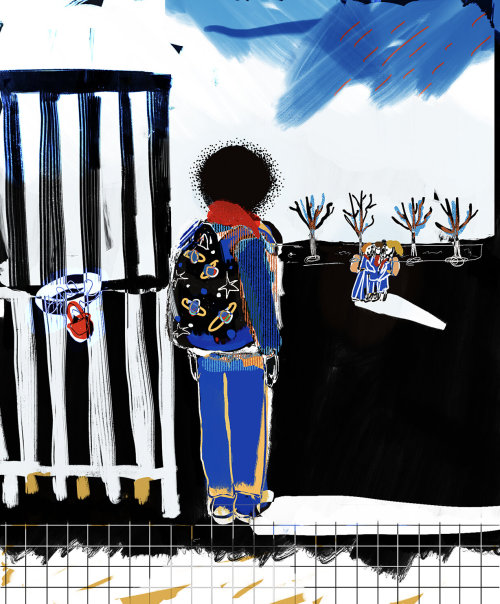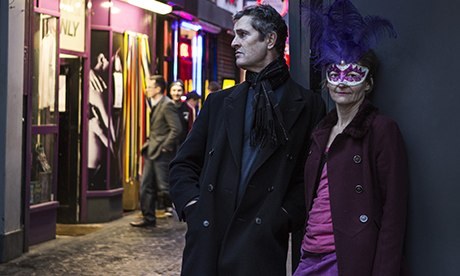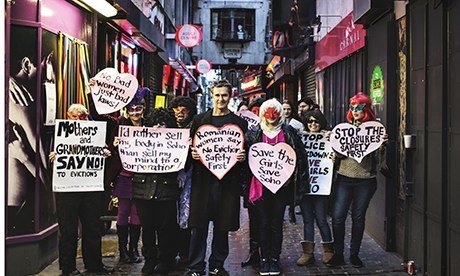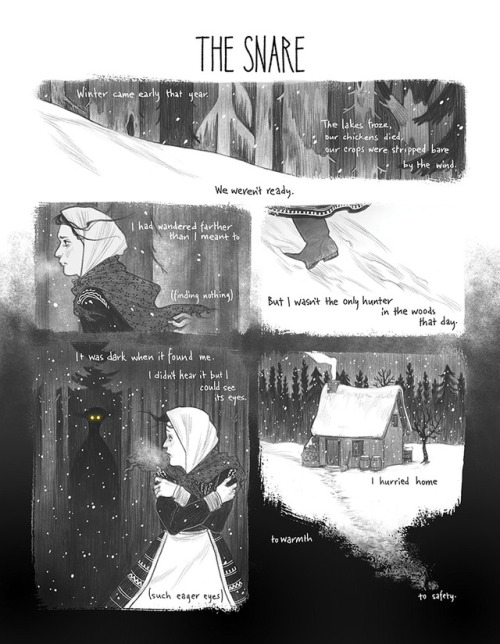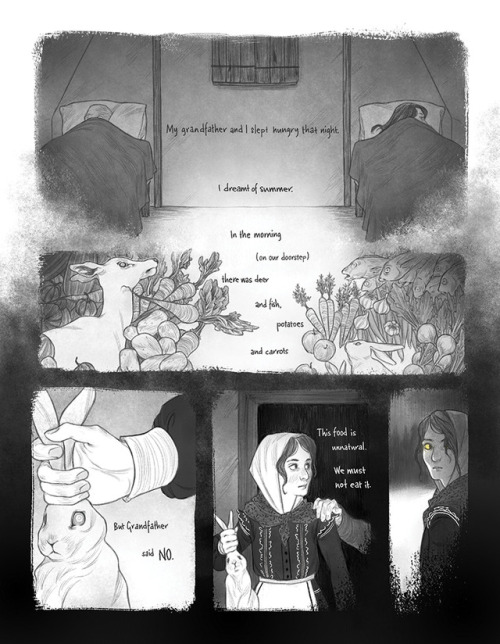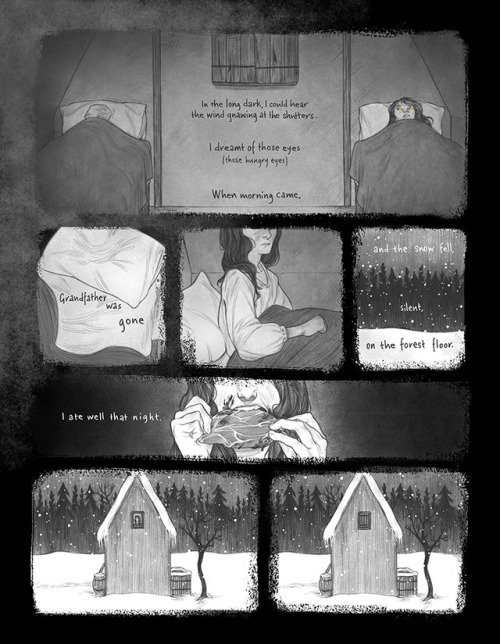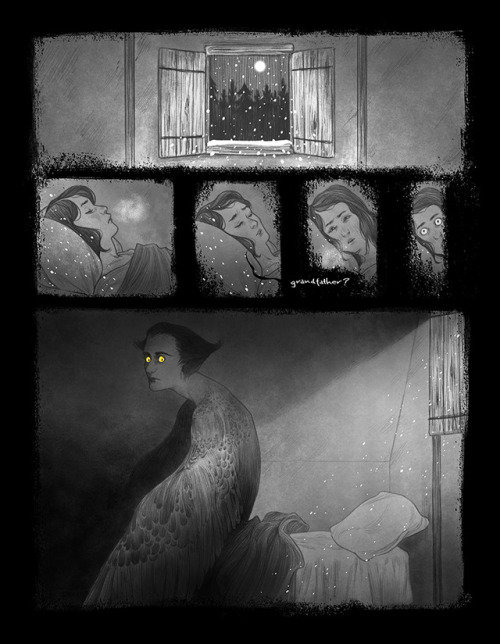#the observer
“For someone who started in the industry so late, it’s been incredible. I don’t know, I got really fucking lucky.” - Caitríona Balfe, for The Observer.
Post link
- Ulysses- Joyce. This is the classic third-person opening to the 20th-century novel that has shaped modern fiction, pro and anti, for almost a hundred years. As a sentence, it is possibly outdone by the strange and lyrical beginning of Joyce’s final and even more experimental novel, Finnegans Wake
- Pride and Prejudice - Austen. The one everyone knows (and quotes). Parodied, spoofed, and misremembered, Austen’s celebrated zinger remains the archetypal First Line for an archetypal tale. Only Dickens comes close, with the beginning of A Tale of Two Cities
- Jane Eyre - C. Brontë. The polar opposite to Austen and Dickens, this line plunges the reader into the narrative, but in a low-key tone of disappointed expectations that captures Jane Eyre’s dismal circumstances. Brontë nails Jane’s hopeless prospects in 10 words. At the same time, the reader can hardly resist turning the first page. There’s also the intriguing contrast in tone with her sister Emily's Wuthering Heights opening.
- The Adventures of Huckleberry Finn - Twain. The influence of this opening reverberates throughout the 20th century, and nowhere more so than in JD Salinger’s The Catcher in the Rye
- Luck of the Bodkins - Wodehouse. A classic English comic opening, perfectly constructed to deliver the joke in the final phrase, this virtuoso line also illustrates its author’s uncanny ear for the music of English. Contrast the haunting brevity of Daphne du Maurier in Rebecca, partly situated in the south of France, and also published in the 1930s
- Earthly Powers - Burgess. This is one of the supreme show-off first-person openings. Burgess challenges the reader (and himself) to step on to the roller coaster of a very tall tale (loosely based on the life of Somerset Maugham). It is matched by Rose Macaulay’s famous opening to The Towers of Trebizond
- I Capture the Castle - D. Smith. A brilliant beginning to a much-loved English classic, which tells us almost all we need to know about the narrator Cassandra Mortmain. Quirky and high-spirited, Dodie Smith’s novel is really an exercise in nostalgia. Smith (subsequently famous for The Hundred and One Dalmatians) was living in 1940s California, and wrote this story, in a sustained fever of nostalgia, to remind her of home. Perhaps only an English writer could extract so much resonance from that offbeat reference to “the kitchen sink.”
- The Bell Jar - Plat. Postwar American first lines don’t come much more angsty or zeitgeisty than this. Compare Saul Bellow’s Herzog. First published under the pseudonym “Victoria Lucas”, this first novel seems to parallel Sylvia Plath’s own descent into suicide. In fact, The Bell Jar was published only a month after its author’s tragic death in the bleak winter of 1963
- The Secret History - Tartt. In this spooky opening, Tartt plunges the reader into the middle of a crime whose consequences will reverberate throughout the ensuing pages. Like all the best beginnings, the sentence also tells us something about the narrator, Richard Papen. He’s the outsider in a group of worldly students at Hampden College in rural Vermont. He was expecting a break from his bland suburban Californian life, but he doesn’t quite understand what he’s got himself into
- Treasure Island - Stevenson. Among the most brilliant and enthralling opening lines in the English language
The Observer New Review: A British Black History (2020)
Illustration for The Observer New Review’s special issue, guest-edited renowned Artist and filmmaker Sir Steve McQueen. As his anthology film Small Axe Series debuts on BBC1 & BBCiPlayer, writer Lola Okolosie speaks on his 5th film “Education”, and the UK’s institutional racism in the 1970’s British school system.
By Ngadi Smart: Instagram
Post link
Rupert Everett
The Observer, Sunday 19 January 2014
Rupert Everett: “these poor girls will always be swimming against the tide.” Photograph: Perou for the Observer
The other night I watched Stephen Ward at the Aldwych Theatre, a morality musical about the destruction of an innocent man by the combined forces of Her Majesty’s Government, her judiciary and her Metropolitan police force. Written by Lord Lloyd Webber, directed by Sir Richard Eyre, it is the best sort of British story, set against a world of stately homes and Soho drinking clubs, of peers, politicians, prostitutes and bent cops – with a few thrilling Jamaicans wielding guns thrown in – all ending up at the Old Bailey, where that deep wave of British hypocrisy (masquerading as fair play and crested by the usual police bullshit) drags Ward out to sea and drowns him. Convicted of being a pimp – he was not – Ward committed suicide on the eve of sentencing.
That night, behind the glitter and tinsel of theatreland, life was imitating art. Fifty years on, the same puritanical forces were at work, the same women under attack. Nothing had changed.
It felt like the perfect moment to look up my friend Nicki, who works with her maid Jodie in a cosy flat at Walkers Court by Brewer Street, for a cup of tea and a chat. Unfortunately, the police seemed to have got there first. Flashing police vans blocked the road. Swarms of bulletproof officers surrounded the doorway of Nicki’s building. It was an image of war, replete with entrenched photographers and journalists as Nicky and Jodie were led away. I shrank back (couldn’t help it) and watched as they marched past, fragile but poised. A woman yelled “Shame”, but otherwise everyone looked busy and made for the shadows. Cameras flashed, sirens wailed and it was suddenly over. Picturesque Soho flickered back to life – blinking neon in halos of rain, red lights glowing in empty windows, the distant roar of Piccadilly Circus shaking the air, and a taxi grinding round the corner into the empty street. “Why?” said the woman watching, to no one in particular, as she walked off through Walkers Court.
There is a land grab going on in Soho under the banner of morality. That night, while Stephen Ward was bowing to an entranced audience, 200 of our boys in blue raided more than 20 models’ flats, arresting 30 girls and confiscating their earnings. (This money, by the way, is virtually impossible to retrieve, due to various glitches in the law concerning legitimate earnings etc.) They broke down doors, intimidated girls into accepting cautions (ie criminal records) and served civil-eviction papers that, unless you were a lawyer, you would not know had hidden in their depths (20-odd pages) the time and date you were to appear in court if you wanted to appeal.
All this in the name of human trafficking. In witness statements I have read, the police claim to have identified at least 300 cases of human trafficking in London alone. Half of them, they believe, have “at some point passed through a Westminster brothel”. So grave is the situation, we are told, that it is written about in a US Department of State report called Trafficking in Persons. Presumably it is as accurate as all their other reports concerning foreign countries. Anyway it is so terrible, the number of trafficked girls so overpowering, that the EU has provided the police with a funding stream to tackle the issue.
Human trafficking is a horrific reality. In the course of making a documentary on prostitution last year I met girls who were abducted, imprisoned and forced into sex work. Escape for these girls is more or less impossible. Their families back home are beaten and tortured. One girl I met managed to get away with the help of a client. Interestingly, when she contacted the police she was told there was nothing they could do. But while even the police say that more than 90% of prostitutes work of their own accord, trafficking has become one of the new “it” words in the bankrupt moral vernacular, craftily used by puritans, property developers and rogue feminists to combat the sex trade in general.
Sections 52 and 53 of the Sexual Offences Act – which relate to control and incitement in sex work – shelter under the anti-trafficking umbrella. These laws are created to protect women. In reality, they are putting working girls on to the street and into great danger.
“The police lady said the raids were not about the prosecution of prostitutes,” one girl told me over coffee a few days later, “but to close down brothels where they have evidence of serious crimes happening, including rape and human trafficking. I say to her: 'Show us the evidence.’ I haven’t heard of one arrest for rape or human trafficking. Instead some of my friends were held for 23 hours and bullied into accepting cautions for criminal offences. Other women I know were taken to a 'place of safety’ despite them saying that they weren’t being forced to work.”
Stephen Ward hearing Dr Stephen Ward, a key figure in the Profumo affair, leaves a court hearing. Photograph: Fred Mott/Getty
In the days after the raid, the musical Stephen Ward haunts me. In the second act huge spangled curtains swish back to reveal Court Number One at the Old Bailey.
A judge in silhouette observes from his throne. Stephen, the defendant, sits beneath him, a pathetic smile in a pool of light – he is watching his own death – while on either side two street walkers give (coerced) testimony claiming that Ward introduced them to clients and took a cut.
At a west London magistrates court Lloyd Webber’s deathly Russian theme (replete with funeral gongs and timpani) rings in my ears as I observe the morning session. The police and the magistrate must find their own Stephen Ward. If they can prove that someone is controlling or inciting these girls to work as prostitutes, they can get closure orders and evict the girls from the flats.
Nicki, Jodie and several others are appealing. They are supported by a few others, and some of the maids, older busty sweethearts with smoker’s coughs and droopy eyes. As far as I can see the girls are all from Eastern Europe, the maids from East Anglia. I sit among them at the back of the court, while the barristers and solicitors – prosecuting and defending – sit in front of us at their desks in frayed suits and unpolished shoes. They joke and confer among themselves, a band of brothers (pale shadows of men like Jeremy Hutchinson, who defended Christine Keeler all those years ago). The prosecuting counsel is a lumbering elephant of 30. I hate him on sight, but our barrister is not much better. He is a skeletal bird, and before the judge arrives is extremely impertinent to one of the girls. “And he’s defending us!” whispers Nicki.
The police constable is a big man of 45, slightly overflowing from a crumpled suit, with thick hair and sensuous lips, a sloppy TV cop come to life, with lashings of rough- diamond charisma. He was probably once very good looking. Maybe he also had a heart of gold, but I doubt it. He has a threatening charm, and when one of the girls asks him how he can sleep at night, his eyes bulge slightly and an artery throbs on the side of his neck. “I sleep very well, thank you!” (Must be a Christian, I think to myself. They seem to be able to sleep through anything.)
He has taken down the witness reports and is clearly in charge of the whole operation. He is humorous with the lawyers and obsequious to the magistrate, whom he addresses as “Ma'am” at the end of every sentence. She is small and neat in a tweed suit, with a thin fringe and a parting across the top of her head, an old cartoon lovebird in reading glasses with a delivery borrowed from the Queen. Her demeanour – the gruesome hairdo, the tight temper, the voice – is contrived to shock. It works. I have seldom felt so demoralised by someone’s behaviour.
We lose the first case. It turns out the police have given everyone documents with differently numbered paragraphs, so the court has to go into recess while it is sorted out. The magistrate is impatient with the arguments of our barrister, dismissive of our ladies’ evidence and endlessly sympathetic to the policeman.
It’s a disaster. But on the second day a miracle occurs. Our skeletal bird of a barrister is suddenly replaced by a dashing silver fox – a Sotheby’s Smoothie – in a sky-blue shirt and a pink tie. Good looking, 50, charming and assertive, he looks at me before the session starts – thinks to himself for a second and says: “1979. Ginger Donelson. New York.” A shared friend, another world.
Rupert Everett with Niki of the English Collective of Prostitutes Night shift: Everett with a senior figure in the English Collective of Prostitutes. Photograph: Perou
A pulpeuse Romanian beauty in skintight jeans steps into the witness box. She is jolly and humble, a solitary woman in a pen surrounded by baying hounds. “Miss Petrinopolous,” breezes the Smoothie. “You are – and I’m afraid there’s only one way to put this – a sex worker.”
“Thank you,” giggles the lady modestly.
“Explain to us, if you will, how you came to be working in the Walkers Court flat?”
“I was desperate.” Miss Petrinopolous is marvellously matter of fact. Her legs crossed, arms neatly folded over an exotic bosom, leaning forward, she seems quite comfortable under scrutiny. Her hands rotate, punctuating her testimony and waving along any discrepancies in tense or grammar. Miss Petrinopolous lives in the present. “Seven years ago. I go to this flat and give the girl working there my number. Maybe if she go on holiday, I think [full rotation], or want some time off [both hands], I can fill in for her. In this way she gives me three days. That is the way we do it. Between girls.” She leans earnestly towards the lawyer.
“Please speak to the judge,” he says gently. She turns to the magistrate. “Nobody force me to do this work!” She explains how girls organise schedules between themselves, that they leave the rent in a microwave to be collected.
“A microwave?” squawks the magistrate, the Lady Bracknell of legal aid.
“Well. It get wet in the fridge.” Big laugh.
“I see.” The lovebird is not convinced.
Later.
“I suggest to you…” thunders the prosecuting elephant, fingers twiddling behind his back, “that a third party was organising your hours and that this third party decided how much you were paid!” He is a damp squib, no competition for Miss P.
“No. We decide ourselves. It depends on the client. If he is rich – not like you – maybe I charge him a little more.” She makes a guilty face. “Sorry!”
The magistrate is amused, charmed actually. Things seem to be taking a turn for the better. The Smoothie has mesmerised the lovebird. And he has drawn out his client magnificently. She totters back to her seat. Now he wheels on the policeman who takes to the witness box, clutching the Bible [promising fingers], rushing through “the truth the whole truth and nothing like the truth” as if it is a shopping list, then regards the Smoothie with a sham working-class reverence.
Never has the class system seemed more alive than in this courtroom. Both men use it against each other to great effect. They are well matched, charismatic and adroit, wrestling with wry humour over the meaning of the word “incitement”. “Prompt!” trills the magistrate, victoriously consulting her dictionary.
The controlling, inciting, prompting character is still elusive. Is he the person putting up the signs directing the clients to the models’ flat? (Incitement?) Is he the freeholder? (Control?) Is he simply a friend who said: “Why not give it a go?” (Prompting?) How seriously have the police attempted to contact the freeholders?
“Not very!” according to the Smoothie.
“Everythin’ oomanly possible, Ma'am,” volleys the policeman. The freeholder’s address is written down as Notting Hill, Cheshire, a deliberate decoy according to the officer, a brick wall at the end of “an extensive line of enquiry”.
“But if you just look here at the postcode after the word Cheshire…” snaps the Smoothie, waving his notes. “W 11 5 S 2 Z. Why did you not pursue that line of enquiry? A postcode, after all, is a hint, is it not, as to where someone lives? And you would find…” The policeman rumbles out a litany of complications.
“No. No. No!” commands our man with a dramatic swipe. But the policeman won’t stop. “Let. Me. Speak. Officer.” There is a sudden pin-dropping silence. “You would find that the freeholder’s address is Holland Park Avenue. But you didn’t really try, did you?”
“We did everything possible, Ma'am.”
“You went through the motions.”
“We did not, Ma'am.”
The magistrate squeaks at the Smoothie: “You have made your point.”
She is torn between the two of them and suddenly it feels as if we could win. In a reasonable screech she weighs up the case, acquiesces to everything the Smoothie has proposed, praises Miss Petrinopolous’s “truthful and compelling testimony” – and now we’re all holding our breath – this is it. The girls hold hands and the maids shut their eyes. The lovebird turns to Miss P – two women, face to face, for the last judgement. In a firm regretful voice she banishes her from all the safety and familiarity of the models’ flat, its Christmas tree still twinkling in an empty room, and consigns her to the streets – to sex in cars on laybys and parking lots, to all manner of danger.
The policeman’s hearsay has trumped the sworn testament of the working girl.
“It’s not fair” is all Miss Petrinopolous has to say, and it is pathetic to watch her leave the witness box. A black Christmas awaits her, shivering on a street corner, while the magistrate reads under a lamp in Wimbledon, carols on the radio, mince pies in the fridge, and the officer stuffs himself with turkey on the Isle of Dogs in a paper hat.
As the next case begins the Smoothie despairs of repeating his arguments and says, simply: “It’s not really worth going into all this, is it?”
“No, not really,” replies the magistrate, looking him in the eye. And so, inevitably, Nicki and Jodie lose their flat, too.
A few weeks before all this happened I joined the English Collective of Prostitutes and other ladies of the night in a demonstration outside the offices of Soho Estates, which owns the Walkers Court flats. It was very sweet. The girls wore masks, carried banners and were draped in tinsel. We all chanted: “Save the girls. Save Soho.” One girl had a megaphone, and soon the CEO came down among us. “We want to build more theatres,” he proclaimed loftily. More theatres? We can’t fill the ones we’ve got.
Paul Raymond with family Soho’s players: Paul Raymond with daughter Debbie and granddaughter Fawn. Photograph: PA
Soho Estates is a property empire built by the late Paul Raymond during the second half of the last century. It is a fortune built on flesh, on the sex trade. It has been inherited by Raymond’s granddaughter Fawn. She wants to become an actress. In the meantime she is playing Monopoly and seems determined to redevelop Soho and double her money. In a curious coincidence, the week after the big raid she receives permission from Westminster Council to knock down the houses on Walkers Court, where many of the models’ flats are located, and build two hideous towers replete with heliports, so that Soho can take its place in “Cool (tax-haven) Britannia”.
Fawn seems to have no feeling for the hard work that has kept her warm and wealthy all these years. Much of every dividend she enjoys, after all, comes from the toil of some long-forgotten vagina. But now she has bigger prostitutes on her books – Westminster Council and British Heritage. She has “prompted” them into selling their bodies – our home – but nobody seems to notice.
A burst pipe brings me back to town at Christmas. I walk through Soho on Christmas morning. There is not a soul about. I am suddenly transported to those days when London died each Sunday and the only noise was church bells.
Bar Italia is closed. The theatres are dark. No lights in the models’ flats. The Christmas Eve storm has blown everyone away. A couple of brain-dead queens stumble across Old Compton Street towards an elusive orgy. Under the blue sky, in the weird silence, the ghastly Christmas spirit hanging there, just the sound of the queens’ slurred voices asking directions, everything is suddenly clear.
Rupert Everett with prostitutes campaigning Out on the street: sex workers join Rupert Everett in a protest about evictions in Soho. Photograph: Perou
In the current climate, with its curious puritanical undertow, these poor girls will always be swimming against the tide. To really get on these days you must be what the world wants, what it perceives you to be, and it wants all prostitutes to be victims. As soon as you declare that you are not one, you are charting a course across hostile waters and you will probably sink.
At the end of the musical, Stephen Ward takes his place in Madame Tussauds, another waxwork. He sings his last goodbye and freezes as a translucent curtain closes around him and Andrew Lloyd Webber’s principal theme – the Russian dirge with funeral gongs – swells to a climax.
The translucent curtain is closing around Soho, too, our historic village of vagrants and immigrants, of hookers and queens, of cheese shops and coffee shops and sex shops and peep shows. It, too, is being reduced to a giant waxwork in a museum, nothing more than the set for a foreign film.
Source:
http://www.theguardian.com/film/2014/jan/19/rupert-everett-in-defence-of-prostitutes
Post link






